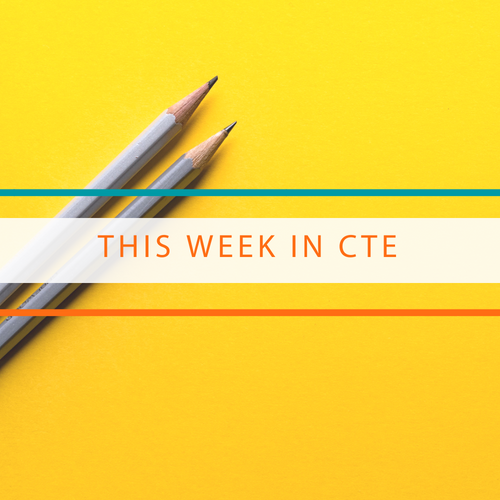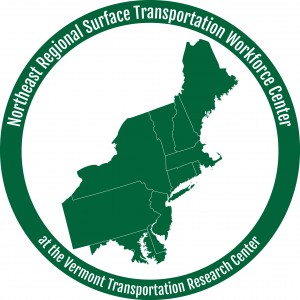For this blog, Senior Policy Associate Dan Hinderliter and Communications Manager Stacy Whitehouse interviewed Washington DC’s State CTE Director Richard Kincaid.
 The 2022 school year heralded the start of another new initiative for the District of Columbia’s Office of the State Superintendent of Education (OSSE)- the Advanced Technical Center (ATC), the first DC area technical center to serve secondary students from public and public charter schools across the District. This development was inspired by Advance CTE’s 2021 50 state report on structure and outcomes in the nation’s area technical centers
The 2022 school year heralded the start of another new initiative for the District of Columbia’s Office of the State Superintendent of Education (OSSE)- the Advanced Technical Center (ATC), the first DC area technical center to serve secondary students from public and public charter schools across the District. This development was inspired by Advance CTE’s 2021 50 state report on structure and outcomes in the nation’s area technical centers
The planning process began in July 2021 when OSSE received an influx of coronavirus relief funds after Mayor Muriel Bowser directed funds from the American Recovery Plan Act (ARPA) to Career Technical Education (CTE) and work-based learning plans. While OSSE is still working to secure long-term funding for the ATC, ARPA funds will keep the school open for at least five years. The ATC initially opened with three programs of study — General Nursing, Cybersecurity and Health Information Technology — on the campus of Trinity Washington University, but will move to a new building shortly after renovations are complete. During the design process, DC CTE Director Richard Kincaid noted two areas vital to the success of the ATC: systems alignment and partnership and an intentional focus on equity, both foundational commitments of Without Limits: A Shared Vision for the Future of Career Technical Education.
Systems Alignment and Partnership
When planning the future of the ATC, systems alignment and partnership was a must-have, especially considering the vast and complicated educational landscape in the District of Columbia. Kincaid and his team convened four initial stakeholder meetings, involving partners from the Deputy Mayor for Education’s office, administrators from DC Public Schools (DCPS) and DC Public Charter Schools (DCPCS), and potential employer partners. These stakeholders helped to calibrate on what the core purpose of the ATC is, who it should serve and how to limit duplication with other area programs. Kincaid shared that working from a partnership perspective instead of from a compliance angle served initial work well, especially where there were already places area principals needed to coordinate services on, such as scheduling or transportation. Given the complex dynamic across agencies in DC, this stakeholder group was vital to ensuring buy-in from and alignment to sending institutions. The group also coordinated an initial list of potential programs, leveraging labor market information and opportunity gap analyses. After a series of community input sessions, the group ultimately narrowed the list to the three programs currently offered.
This lens of partnership also contributed to early programmatic successes. Significant conversations with local postsecondary institutions led to memorandums of understanding (MOUs) allowing learners to receive dual credit for all courses (five credits for every semester a learner is enrolled at the ATC). These courses are applied to aligned credit in the learner’s program of study, not just general education requirements. Postsecondary institutions also share instructors with the ATC to teach advanced coursework. Employer partners also support the program through site visits and career exploration conversations with learners; proximity to federal agencies means federal partners like the White House’s National Cybersecurity Initiative have visited the ATC. Future years will see employers supporting on- and off-site work-based learning initiatives, and Kincaid hopes to one day see an employer co-located with the ATC to provide daily hands-on training.
Intentional Focus on Equity
Kincaid also stressed that the main intent behind the ATC was to close equity gaps, in particular for learners from wards historically underserved by DC’s educational programs. He and his team intentionally designed the ATC’s supporting infrastructure to limit barriers to access for learners. For example, OSSE contracted with a local cab company to provide transportation to learners to and from the ATC, to limit unsafe walks or undue travel burdens for learners. While he noted this was a logistical hurdle, Kincaid noted this was a permanent focus of the ATC to always ensure learners could access the ATC’s programs. Programming for the ATC is also open-access, limiting cost or grade barriers for learners. There are no entrance exams- to earn the aforementioned dual credit, learners must simply achieve a C or higher in each to receive college credit above a final grade. Finally, future plans will continue to center equity initiatives, including paid internship opportunities and the development of future programs that advance historically marginalized learners, particularly learners of color, in historically underrepresented fields.
What’s Next for DC’s ATC
Within the next two years, the Advanced Technical Center looks to make big strides by moving into a permanent home and expanding the student population served. In 2022, approximately 130 learners were enrolled; by 2025, Kincaid hopes to have 600 learners regularly attend. The hope is also for learners regardless of age and program to participate in school-time, paid year-round internships, including some with industry partners co-located with the ATC. Through the changes, equity and partnership will remain at the heart of the ATC’s focus.
Dan Hinderliter, Senior Policy Associate


 We have compiled a list of highlights in Career Technical Education (CTE) from this week to share with you.
We have compiled a list of highlights in Career Technical Education (CTE) from this week to share with you.